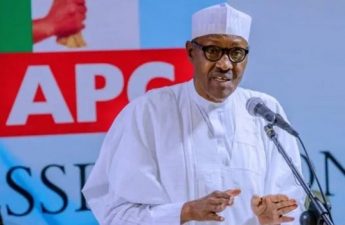Consequence of Internal Political Party Acrimony – A Panacea to extinct of the Party! – Call for Remedy to the Strengthening of Democracy in Nigeria – APGA National Chairman, Barrister Sly Ezeokenwa Opines! -Written by NDUKA
ANYANWU.
Party system is one of the essential tools for democracy. In all democracies, conflict is inevitable. This is true because
democracy seeks the effective ways through which a society should be governed, borne not out of contest either internally or externally. Conflict results whenever two or more persons seek to possess the same object or occupy the same position and play incompatible means of achieving their purposes.
The Questions at heart are:
1. What has the situation been like in the internal contest ofnthe Most Nigerian Political Parties?
2. What are the factors responsible for intra-party conflict in these Parties?
3. How do these factors affect Nigeria as it moves towardsndemocratic consolidation and sustainable development?
4. What is the way forward?
These are the premises of this Article with an in-depth analysis of the concept by addressing the rate at which it occurs overtime. From all indications, it is observed thatnthe parochial idea of the party stalwarts in some of these Political Party is highly defective. The article then maintains that there should be transparency in party financial administration and the imposition of candidates into any elective position should be abolished, among other ways forward. It then concludes that unless intra-party democracy is embraced solution to intra-party conflicts and total political violence in Nigeria will be a mirage. The internal contests of most Nigerian political parties have been plagued by conflicts, which have hindered the country’s democratic consolidation and sustainable development.
Current State of Internal Contests in Nigerian Political Parties
The situation is characterized by weak institutionalization, personalization of politics, and exclusionary practices. These factors have led to a lack of trust among party members, factionalization, and in some cases, violence.
Factors Responsible for Intra-Party Conflict Some of the key factors responsible for intra-party conflict in Nigerian political parties include:
1. Lack of Internal Democracy: Many parties lack effective internal dispute resolution mechanisms, leading to conflicts.
2. Personalization of Politics: Politics is often personalized, with party leaders prioritizing individual interests over party goals.
3. Exclusionary Practices: Parties often exclude certain groups or individuals from decision-making processes, leading to feelings of marginalization.
4. Financial Influences: Money plays a significant role in Nigerian politics, leading to corruption and conflict.
Impact on Democratic Consolidation and Sustainable Development
These conflicts have significant implications for Nigeria’s democratic consolidation and sustainable development. They:
1. Undermine Trust: Intra-party conflicts erode public trust in political parties and the democratic process.
2. Hinder Effective Governance: Conflicts distract from policy-making and effective
governance, hindering development.
3. Foster Instability: Prolonged conflicts can lead to social unrest and instability.
The Way Forward
To address these challenges, Nigerian political parties must prioritize:
a. Inclusive Leadership: Encourage diverse representation and inclusive decision-making processes.
b. Internal Democracy: Establish effective internal dispute resolution mechanisms.
c. Transparency and Accountability: Foster transparency and accountability within party structures.
d. Grassroots Engagement: Engage with voters and promote participatory democracy.
By addressing these challenges, Nigerian parties can strengthen their internal processes, promote democratic consolidation, and support sustainable development.




